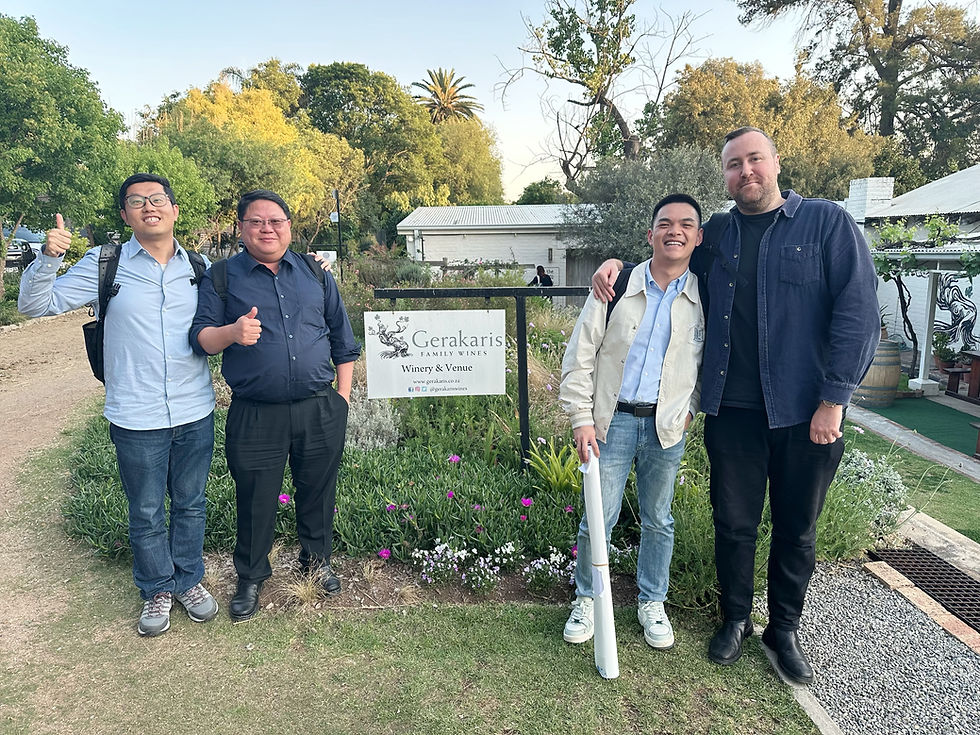GEM Programme Shines at SETAC Congress in Johannesburg
- chonchen6
- Oct 7
- 2 min read
During September 29 to October 3, 2025, the SETAC 9th World Congress and SETAC Africa 12th Biennial Meeting took place in Johannesburg, South Africa. Professor Kenneth Leung, the director of the GEM Programme, along with Dr. Chong Chen, the manager of the GEM Programme, and Dr. Qi Wang, a postdoctoral researcher at the State Key Laboratory of Marine Environmental Health (SKLMEH), participated in this significant event.

Prof. Leung delivered a captivating plenary talk entitled “World’s largest eco-engineered shoreline boosts marine biodiversity”. Additionally, as one of the conveners of the Section on “Methods for Deriving Protective Guidelines for Environmental Exposure”, Prof. Leung presented a talk in this session titled “Marine Ecotoxicology and Climate Change: Deriving Water Quality Benchmarks with Consideration of Influence of Multiple Stressors on Chemical Toxicity”.




Dr. Chong Chen showcased a poster titled “Deriving Predicted No Effect Concentration for Pharmaceuticals in the Global Estuaries Monitoring Programme”, while Dr. Qi Wang presented a poster on “Ecological Risk Assessment of Emerging PFAS in the Marine Environment”. Both researchers provided spotlight presentations during the session.



On October 1, Prof. Leung, Dr. Chen, and Dr. Wang visited the University of Johannesburg (UJ) and engaged in discussions with the Faculty of Science at UJ. Representing the College of Science at City University of Hong Kong (CityUHK), Prof. Leung introduced collaborative initiatives and student programs at CityUHK, while Dr. Chen highlighted the progress and future prospects of the GEM Programme, emphasizing global collaboration and cutting-edge research in Hong Kong. Dr. Wang shared his enriching experiences of studying and working at CityUHK, including his ventures such as diving into the deep sea aboard the Jiaolong manned submersible.






Following a successful and enriching week, the GEM Programme has expanded its network in Africa and established cooperative relationships with additional research partners in Africa and across the globe.




